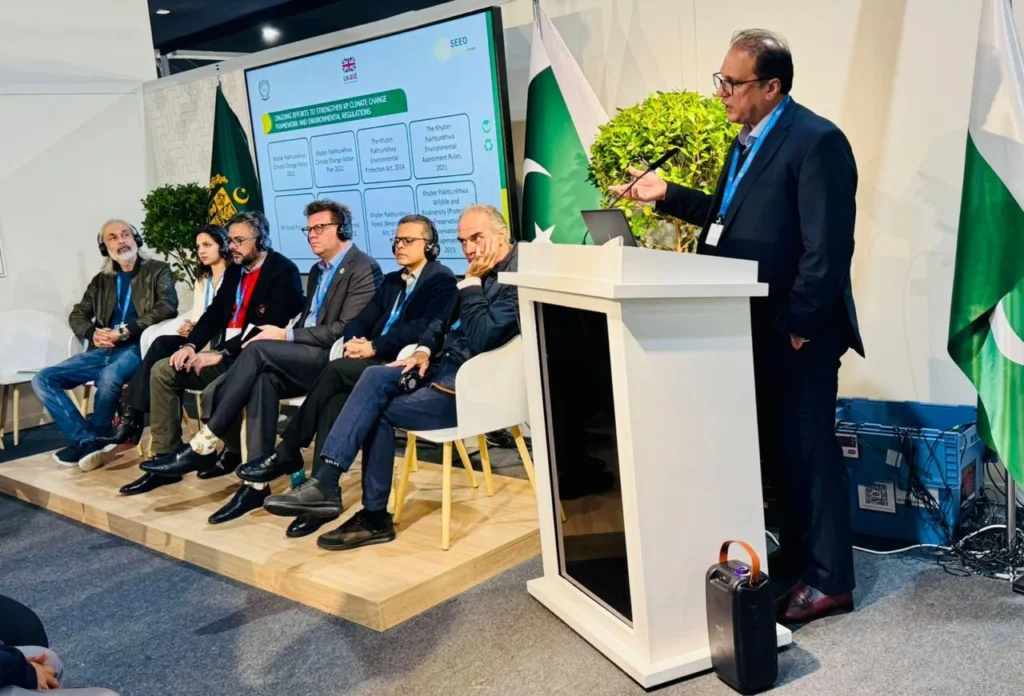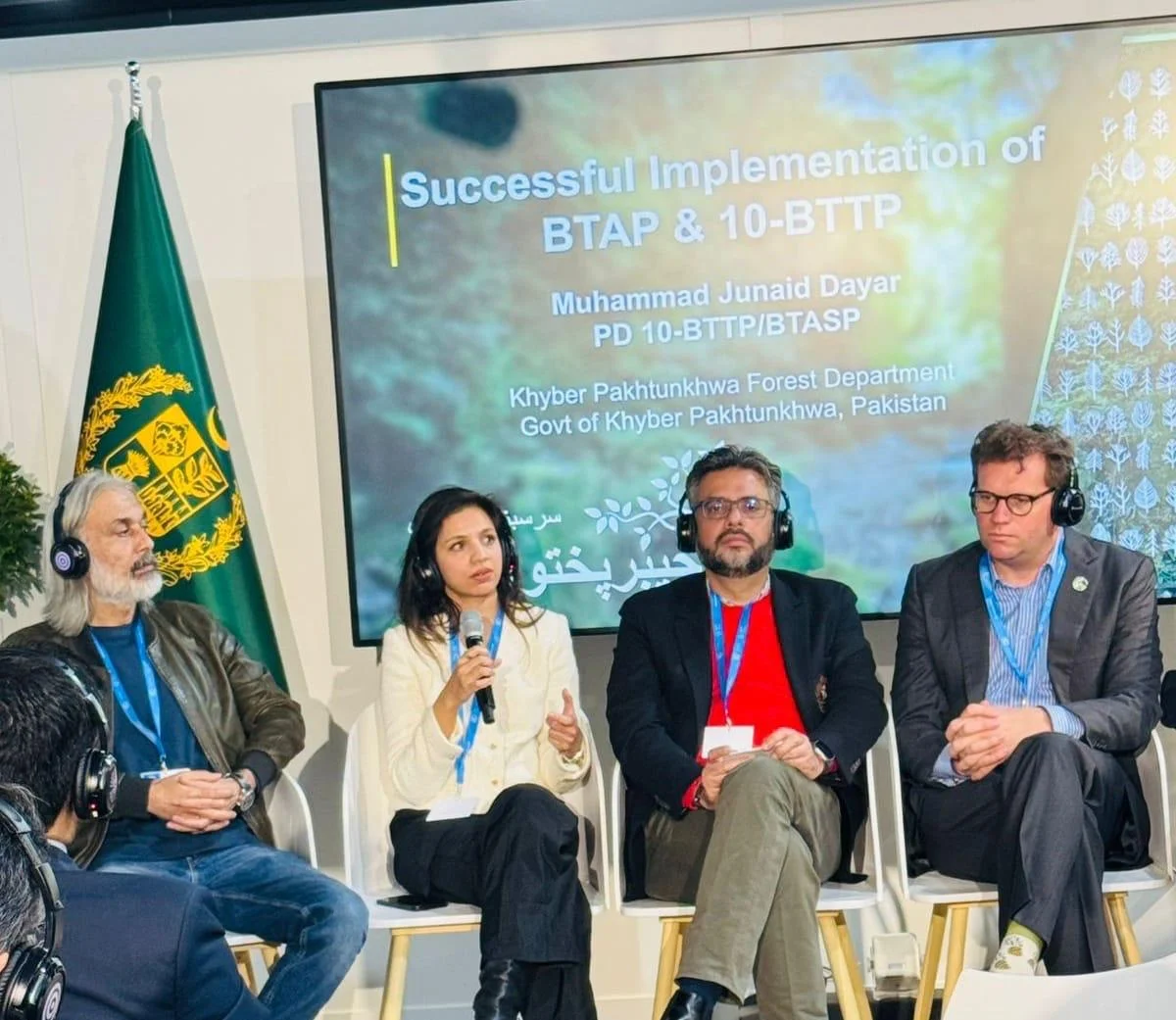At COP29 in Baku, Khyber Pakhtunkhwa (KP) made Pakistan proud by showcasing its efforts to tackle climate change.
The province highlighted its creative and practical ways to build climate resilience, setting an example for the world on how to fight climate challenges effectively.

What is Climate Resilience COP29 Baku?
Climate resilience was the main focus at COP29, held in the beautiful city of Baku, Azerbaijan.
Leaders, scientists, and activists from around the world came together to talk about how we can deal with the challenges of climate change.
With rising temperatures and unpredictable weather affecting everyone, these discussions were very important.
The event shared ideas on protecting communities, improving ecosystems, and building a sustainable future for all. It was a hopeful and collaborative step toward a healthier planet.

Leadership in Climate Action:
Khyber Pakhtunkhwa (KP) is leading the way in planting trees, using renewable energy, and working with both government and private organizations to fight climate change.
These efforts have created nearly 10 million jobs across Pakistan, showing how environmental projects can also boost the economy.
Dedication to Forest Workers:
At the event, Khyber Pakhtunkhwa (KP) honored the brave forest workers who gave their lives battling wildfires.
The government promised to keep working on building climate resilience and announced that they will share the results of the Ten Billion Tree Tsunami project next year.
KP’s Vision for Climate Resilience:
Ikramullah Khan, the Additional Chief Secretary of KP, shared the province’s detailed plan to address major climate challenges like:
- Flood management
- Tackling deforestation
- Mitigating climate disasters
He also emphasized the need to connect with global carbon markets and shared creative ideas for funding climate projects.
Spotlight on Forest-Based Carbon Markets:
At a special panel at COP29, Shahid Zaman explained how KP is turning its forests into carbon credits.
International experts, including Nick Haslam and Kashmali Khan, praised these efforts and stressed the importance of global support and funding to help KP grow its work even further.
The Billion Tree Tsunami: A Global Model
The Billion Tree Tsunami is a big tree-planting project started in Khyber Pakhtunkhwa (KP), Pakistan, to fight climate change and protect nature.
It was started by former Prime Minister Imran Khan of Pakistan to show his commitment to environmental concerns.
The goal was to plant one billion trees, bring back forests, and improve the environment. This project helped reduce carbon emissions, created jobs, and taught people the importance of caring for the planet.
The Billion Tree Tsunami: A Major Success at COP29
The Billion Tree Tsunami Project from KP was highlighted as a major success at COP29. Junaid Dyar, a key leader of the project, shared its impressive outcomes, including:
- Restoring degraded ecosystems
- Enhancing biodiversity
- Generating valuable carbon credits
This project has emerged as a worldwide model for effective afforestation initiatives.
Support from Global Partners:
KP’s climate plans have received strong support from global organizations like the UK’s SEED Programme, WHO, UKHSA, and USAID.
These partnerships are helping KP achieve its goals for reducing climate impacts and boosting economic development.
Looking Ahead:
KP is taking the lead in Pakistan for sustainable development with its climate strategies and creative projects.
Its participation in COP29 shows its dedication to tackling climate problems, creating green jobs, and building a sustainable future.

